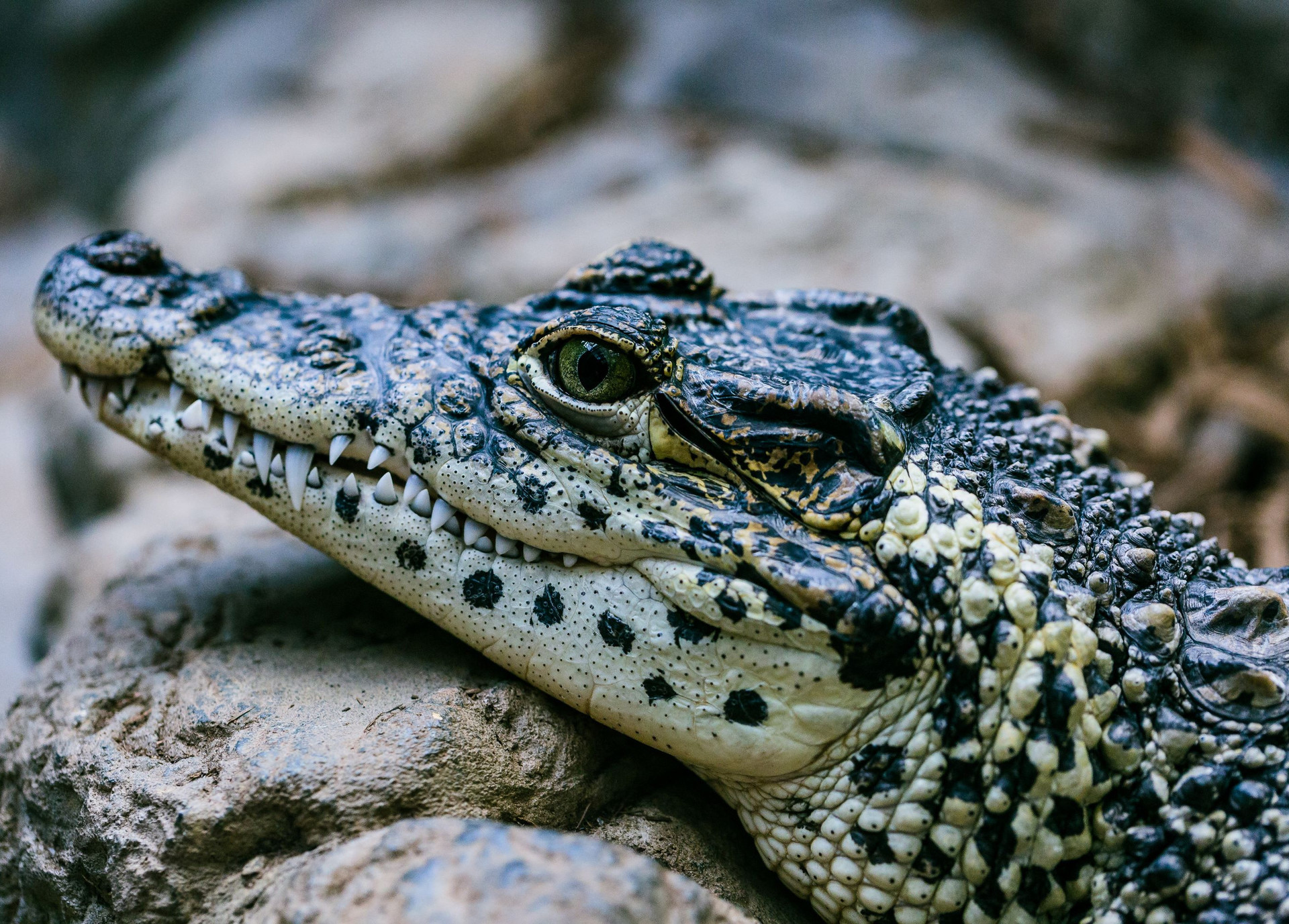
Exotic Leather
A life of horror, for some its ended being skinned alive. We can change this!
Millions of wild animals are killed for their skin every year to produce exotic leather, they are either bred and killed on farms, or caught in the wild. Many are turned into shoes, watch wrist bands and handbags.
So much of this trade operates entirely outside of the law. For example, it is likely there are as many python skins traded illegally as there are traded legally. Skins from wild pythons are routinely mixed in stockpiles of skins from ‘legally-sourced’ pythons prior to export.1
Many endure a lifetime of fear and pain, simply to produce shoes or a handbag. These animals deserve so much better.

Spotlight on crocodile and alligator farming
Crocodiles and alligators are incredible survivors. But these fascinating creatures, who first appeared on the earth around 200 million years ago, are facing a threat like never before.2
And that threat is unethical fashion.
These animals whose ancestors lived amongst the dinosaurs are farmed and killed in staggering numbers simply so their skin can be turned into shoes and handbags.
Crocodile farming and harvesting eggs from the wild are legal in Australia3 but these wild animals are entirely unsuited to farming and the result is cruel and distressing.
- 90% of injuries that farmed crocodiles suffer are caused by their environment.
- Crocodiles are wounded through fighting and develop deformities because they can’t walk, swim, or express any of the behaviours they would in the wild.
- Wounds easily become infected in water that is polluted by overcrowding.
- Crocodiles have two-centimetre-thick skulls and slaughtermen resort to barbaric methods including repeated blows with axes or baseball bats to smash through the animal’s skull.
- Crocodiles suffer extreme pain during the slaughter process, they often die a slow death and some even experience the unimaginable agony of being skinned alive.
- Farmed crocodiles are usually slaughtered at two to three years of age. In the wild they can live for 70 years.4

Poor conditions on a crocodile farm
What are we doing?
Change is underway. Growing demand for ethical fashion has driven a steady progression of major designers and fashion houses rejecting the use of exotic leather.
Brands Chanel, Victoria Beckham, Vivienne Westwood, Diane von Furstenberg and ASOS plus retailers Topshop, H&M and Selfridges have all banned the use and sale of exotic leather. They are helping to lead the way – the future of fashion must involve kindness to animals.
But, as long as there are animals suffering, we will continue our fight against this cruelty. We will expose the truth behind fashion and, through our Wear it Kind programme we will continue to mobilise a movement of people, brands and designers who are 100% committed to ensuring that no animal suffers for the sake of fashion.
We provide companies with the advice, training, and tools they need to make much-needed changes in their supply chains because each positive step they take improves the lives of animals.
How can you help?
- Take the Wear it Kind pledge and commit to never buying exotic leather.
- Consumer pressure drives change, and your voice really can make a difference. Speak, or write, to the management of any store selling exotic leather.
- Use our Wear it Kind shopping guide to help you make great fashion choices.
Source
2. Smithsonian 2012, ‘The top 10 greatest survivors of evolution,’ https://www.smithsonianmag.com/science-nature/the-top-10-greatest-survivors-of-evolution-118143319/
3. O’Connell, S 2006, ‘Crocodile farms: is it cruel to keep these wild creatures captive?’, The Independent, https://www.independent.co.uk/climate-change/news/crocodile-farms-is-it-cruel-to-keep-these-wild-creatures-captive-418794.html
4. O’Connell, S 2006, ‘Crocodile farms: is it cruel to keep these wild creatures captive?’, The Independent, https://www.independent.co.uk/climate-change/news/crocodile-farms-is-it-cruel-to-keep-these-wild-creatures-captive-418794.html
